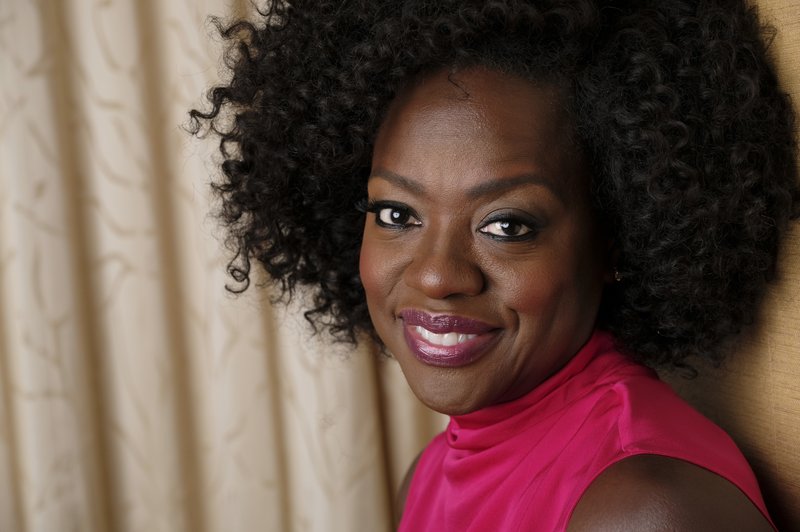TORONTO -- To Viola Davis, being naked on screen or onstage means more than having your clothes off. It means ridding yourself of self-consciousness and ego. It means exposing yourself.
"Oftentimes you do see dynamic acting -- there are a lot of really dynamic actors -- but there is a sense of vanity," Davis says. "I always say that when people get naked on stage it always looks like they've been to the gym for about five years. And we all know that's not the case. When we get naked in life, we may have some rolls of flesh around our stomach. You may have some stretch marks. Now that's intimate."
There was, memorably, no vanity in Davis' Rose in Fences, a performance that reached its aching crescendo in her shattering, snot-dripping "18 years of my life" monologue. But in Steve McQueen's electric Chicago underworld thriller Widows, Davis' raw intimacy includes a dimension she has rarely, if ever, gotten to express in film -- her sexuality.
"It's a part of the strength. It's a part of the badass-ness. It's a part of the vulnerability," Davis, fighting a cold, said in an interview the morning after Widows premiered at the Toronto International Film Festival. "The first scene in the movie I'm in bed with Liam Neeson. That may seem like not a big deal to you but to me that was a big deal."
In Widows, McQueen's follow-up to the Oscar-winning 12 Years a Slave, Davis stars as the wife of a veteran thief (Neeson) who dies, along with his crew, in a heist gone wrong. For their spouses, it's almost as if their lives have also been extinguished. But with Veronica Rawlins' leadership, they (the other women are played by Michelle Rodriguez, Elizabeth Debicki and Cynthia Erivo) resolve to take over their late husbands' criminal plans and pull off what none expect them capable of.
"This was a great experiment in exploring how to work out getting back your power," Davis says. "In my life I'm still learning that."
When a reporter points out that she -- one of the most movingly outspoken advocates for on-screen representation and inclusion -- seems quite in control of her considerable power, Davis demurs. "Like everyone, I have my good moments and bad moments."
Davis has won an Oscar (for Fences), an Emmy (for How to Get Away With Murder) and a Tony, twice (for Fences and King Hedley II) -- a trifecta that no other black actor has accomplished, and few others, for that matter. Along the way, her impassioned acceptance speeches have been some of the most potent thunderbolts of inspiration in the wider fight for diversity.
But it has been almost a decade since her Doubt co-star Meryl Streep pleaded "My God, somebody give her a movie!" at the Screen Actors Guild Awards (and later called her "possessed to the blazing, incandescent power"). Since then, Davis has been a mainstay on screens big and small, but she has seldom been front and center.
For McQueen, Davis' lack of leading performances is one of the most glaring injustices in Hollywood.
"She can only be judged by the films she gets to do. Don't forget: she could not really make a living in film because no one was giving her any roles," McQueen says. "She was not given an opportunity to fulfill her craft. So she had to go on television. Viola's 53 years old. She should have a vast body of work by now."
MovieStyle on 11/16/2018

